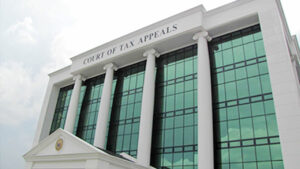Dole tax petition vs Davao junked
THE Court of Tax Appeals (CTA) junked the petition of Dole Philippines, Inc.-Stanfilco Divison which challenged Davao City’s Watershed Code and environmental tax, citing lack of jurisdiction. The tax court’s Second Division said the environmental tax is a regulatory fee, not a tax intended to generate revenue. “Correspondingly, this Court is without jurisdiction to entertain […]

THE Court of Tax Appeals (CTA) junked the petition of Dole Philippines, Inc.-Stanfilco Divison which challenged Davao City’s Watershed Code and environmental tax, citing lack of jurisdiction.
The tax court’s Second Division said the environmental tax is a regulatory fee, not a tax intended to generate revenue.
“Correspondingly, this Court is without jurisdiction to entertain the present appeal of the assailed Decision and assailed Order issued by the Regional Trial Court (RTC),” the 17-paged decision, penned by Associate Justice Corazon G. Ferrer-Flores, read.
“The Court finds that the Environmental Tax imposed under Section 17 of Davao City Ordinance No. 0310-07 is not a tax,” it added in a decision publicized on Oct. 2.
The case began when Dole, Inc. challenged Davao City’s Watershed Code, enacted by then-Mayor Rodrigo R. Duterte in 2007, seeking to nullify the law and declare the collection of the environmental tax incorrect and illegal.
It also asked the local government, under his successor Sara Z. Duterte-Carpio, to refund the P3.32 million environmental tax that it had paid under protest.
The banana exporter initially filed its petition before the Davao City RTC but did not win, prompting to elevate the case before the CTA.
The firm argued the environmental fee was excessive, oppressive, confiscatory, arbitrary, and discriminatory, adding it was not a regulatory fee but a tax.
Assuming it is a fee, it should be declared invalid for imposing an excessive amount, it said.
The CTA clarified that if the main goal of an imposition is to raise revenue, it is considered a tax. However, if it is mainly meant to regulate, it is classified as a regulatory fee even if it also generates some revenue. — Chloe Mari A. Hufana














